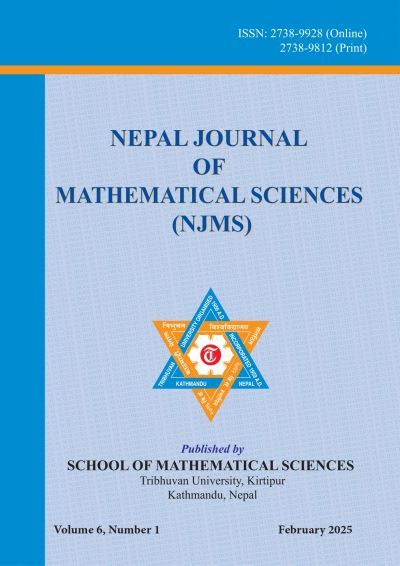Analysis of Foreign Exchange Rate Forecasting of Nepal using Long Short-Term Memory and Gated Recurrent Unit
DOI:
https://doi.org/10.3126/njmathsci.v6i1.77369Keywords:
Forex rate, Long Short-Term Memory, Gated Recurrent UnitAbstract
Foreign exchange rate represents the value of one currency relative to another and influences international trade and investment. It is crucial for a country's economy as it affects the cost of imports and exports, impacting trade balances and inflation rates. This study compares the forecasting of the forex rate of Nepal and its volatility by using Long Short-Term Memory (LSTM) and Gated Recurrent Unit (GRU) models. The study uses secondary time series data that consists of foreign exchange rate from 2005 to 2024 A.D. Various error metrics were used to compare the performance of these models to predict the foreign exchange rate. The final result showed that the LSTM model outperformed GRU with superior forecasting accuracy, achieving a Mean Squared Error (MSE) of 4.7056, a Root Mean Squared Error (RMSE) of 2.1692, a Mean Absolute Error (MAE) of 2.0262, and a Mean Absolute Percentage Error (MAPE) of 1.5764%. In contrast, the GRU model yielded higher error metrics with an MSE of 7.1607, RMSE of 2.6759, MAE of 2.5673, and MAPE of 2.0061%. These findings highlight the effectiveness of LSTM in capturing historical trends and managing volatility, suggesting its robustness for forex rate prediction. Although the study focused on historical forex rates of the Nepalese Rupee against the US Dollar, incorporating additional economic indicators such as interest rates and Foreign Direct Investment (FDI) could enhance the model’s predictive capabilities.
Downloads
Downloads
Published
How to Cite
Issue
Section
License
© School of Mathematical Sciences, Tribhuvan University

